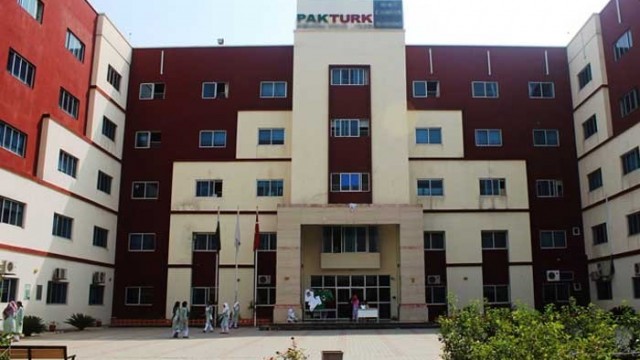by Umer Gilani, Muhammad Alee & Sajjad Hameed Yusufzai
Earlier this week, on 24th October, 2022, the Judicial Commission of Pakistan approved the appointment of three new judges to the bench of the Supreme Court of Pakistan. Although the general public does not have any constitutionally sanctioned role in the appointment of Supreme Court judges, the representatives of the people do. The Federal Law Minister and the Attorney General of Pakistan get a chance to vote in the Judicial Commission of Pakistan; and the bi-partisan and bicameral Parliamentary Committee set up under Article 175 of the Constitution gets to vet the appointments proposed by the Judicial Commission.
Since Pakistan is a democracy, in terms of constitutional theory at least, there is a case to be made in favor of sharing more information about judges of the apex court with the public. Such transparency can help increase the confidence of the citizens in the institutions concerned. This is something that should ideally be done before the nominations are made, and by those who propose the same. However, since the relevant decision-makers never share any information about judicial nominees with the public, the authors, in this article, have made a humble attempt to share the same with the reading public. We have gathered the information shared in this article through whatever was available in the public domain; in case of any factual inaccuracies, we would be happy to be corrected.
- Justice Athar Minallah
Out of the three judges nominated by the Judicial Commission yesterday, Justice Minallah is by far the most widely known person both within the legal community and the general public. Once appointed, he is likely to remain on the Supreme Court’s bench for approximately four years.
Born in 1961, he comes from a prominent and widely respected family. His father was a senior civil servant who rose to the highest possible rank in civil service: Chief Secretary. His mother was a prominent social worker all her life who also ran for elected office. After graduating from University of Cambridge, Justice Minallah initially joined the civil service and worked in the Customs Department. Soon, however, he resigned and joined the legal profession. Together with Syed Mansoor Ali Shah and Yahya Afridi, he set up a law firm ‘Afridi, Shah and Minallah’, which became one of Pakistan’s most successful commercial law firms at the time. Justice Minallah’s prominence as a lawyer reached its peak as he spearheaded the defence of the then Chief Justice Iftikhar Muhammad Chaudhary who had been deposed by General Musharraf.
Justice Minallah was elevated as a judge of Islamabad High Court on 17.06.2014 during the tenure of former Chief Justice Tassaduq Hussain Jillani. He remained an unconfirmed judge for 2 years, an ordinately long period for a person who enjoyed a reputation for academic excellence. He was finally confirmed in May 2016, during the tenure of Justice Anwar Zaheer Jamali.
Within about two of getting confirmed as a judge, on 28.11.2018, he became Chief Justice of the Islamabad High Court, an office he held for almost four years.
In his 8-year tenure as a judge, Justice Minallah decided thousands of cases and has authored more than a hundred reported judgments. In a relatively short period, because of his bold and fearless judgments, he became know in all the various provinces of the country. By now, he is probably become the most widely known member of the country’s judiciary. In the lay public, his fame and visibility are comparable only to that attained by former Chief Justice Iftikhar Chaudhary, in the period after the Lawyers’ Movement.
His principal expertise is in the field of Pakistani constitutional law and fiscal laws. His most prominent judicial contributions include the following:
- Missing Persons Cases. Starting with the case of Mahera Sajid versus SHO PS Shalimar & Others (2018 CLC 1858 Islamabad), Justice Minallah has authored a series of judgments which dwell upon the constitutional responsibility of various state functionaries for committing and conniving in the crime of enforced disappearance. In the process, he had revived the once-forgotten judicial precedents related to constitutional torts.
- Naval Farms Case. In his judgment in the ‘Naval Farms Case’, Zeenat Salim versus Pakistan Naval Farms etc. (PLD 2022 Islamabad 138), Justice Minallah has resurrected with full force the doctrine of “enumerated powers”, one of the most basis doctrines of modern constitutionalism. He pointed out that since the statutes governing the three-Armed Forces of Pakistan do not empower them to engage in business enterprise, and since statutory bodies can only exercise enumerated powers, the entire business empire built by the military establishment is devoid of legal foundations. This principle can have serious long-term implications for the future development of Pakistani state institutions.
- White Collar Crime cases. Justice Minallah remained consistently in favor of providing due process rights to accused persons. He granted bail to numerous persons accused of white-collar crime on the simple and logical ground that the object of the law is to imprison convicts, not accused persons. Perhaps the two most important judgments in this regard are reported as Amjad Mustafa Malik versus DG NAB (PLD 2021 Islamabad 266) and Sheikh Imran ul Haq versus Federation of Pakistan (PLD 2020 Islamabad 177). Since a number of persons who obtained bail on by relying on this rights’ conscious jurisprudence were political workers and journalist, these judgments often drew the ire of opposing political forces.
- Digital Rights. A number of judgments in the field of digital rights won Justice Minallah worldwide fame. In 2018, in a judgment reported as CM Pak Limited versus PTA (PLD 2018 Islamabad 243), he allowed a number of petitions against telecom shutdowns and restrained the government from shutting down telecom signals, except when there was a proclamation of emergency in the country.[1] Later that year, he also passed an order restraining PTA from arbitrarily blocking websites.[2] Amongst other, the Columbia University’s Global Freedom of Expression Initiative hailed judgments as advancements.
- Citizenship Matters. Justice Minallah has authored numerous judgments which clarify the most basis of all constitutional right: citizenship. These judgments, the most prominent of which is reported as Hafiz Hamdullah Saboor versus Government of Pakistan (PLD 2021 Islamabad 305) are also likely to have long-term significance.
- Land Acquisition Cases. Justice Minallah passed numerous judgments against the forceful acquisition of private land at below-market rates by state entities who then dole out the spoils amongst the top brass of the judiciary and civil service. This is a subject which has been previously avoided by the judiciary. Although the Honourable Supreme Court has partially reversed Justice Minallah’s judgments defending common people’s right to property and the constitutional bar against expropriation, the debate generated by him is likely to have long-term implications.
- Justice Shahid Waheed
Justice Shahid Waheed is one of the most senior and prominent judges from the province of Punjab. Once appointed, he would be the youngest Supreme Court judge in terms of age. He is likely to remain on the bench of the Supreme Court for approximately 9 years and would become Chief Justice of Pakistan for a short stint after Mrs. Justice Ayesha Malik.
He was born in 1966 to the late Mr. Justice Abdul Waheed, himself a prominent jurist of his era. He attended the Government College Lahore and thereafter he chose law as his field of study and did his Bachelors of Law (LLB) from Punjab University, Lahore. After completion of graduation in law and apprenticeship under the auspices of Ameer Alam Khan, he enrolled as an advocate with the Punjab Bar Council on 27.05.1990. After two years experience at district judiciary, he was enrolled as an advocate of the High Courts in 1992. He also got his license as a lawyer of Supreme Court of Pakistan in 2003. He served as a lawyer for almost 22 years continuously and represented companies and different entities as a counsel on different forums.
He was elevated as a judge of the Lahore High Court during the tenure of former Chief Justice of Pakistan, Iftikhar Muhammad Chaudhry on 27, March 2012. In his 10-year long service as a judge, he authored as many as 107 reported judgments according to the website of Lahore High Court. His principle areas of expertise are civil law, commercial law and regulatory laws.
- Justice Hassan Azhar Rizvi, Judge SHC
Justice Rizvi was born on 02.02.1962 to a Syed family in Karachi. He enrolled as an advocate on 08.10.1988. He served in subordinate judiciary for two years. This is an experience which none of the other judges presently serving on Supreme Court’s present bench have had. He was enrolled as an advocate of the High Courts on 01.12. 1990 and remained in practice for the next two decades. During this period, he represented a wide range of clients, mainly in the field of commercial and civil law. He represented many companies and government agencies as counsel. He enrolled as an Advocate of the Supreme Court of Pakistan on 18.01.2003. He served as a legal advisor to, amongst others, Karachi Electric Supply Corporation, Karachi Port Trust, National Bank of Pakistan and Port Qasim Authority. With many years as a successful lawyer, he was elevated as a judge of Sindh High Court on 18.02.2010 during the tenure of former Chief Justice of Pakistan, Iftikhar Muhammad Chaudhry. He served as judge of the High Court for almost 12 years and has authored 178 reported judgments, mainly in the field of commercial and civil laws. Since the Sigh High Court, unlike all the other High Courts in the country also functions as a trial court, Justice Rizvi presided over a large number of civil trials during his tenure. He would therefore bring a wealth of experience in the field civil procedure to the Supreme Court.
[1] https://globalfreedomofexpression.columbia.edu/cases/cm-pak-limited-v-pakistan-telecommunication-authority/
[2] https://globalfreedomofexpression.columbia.edu/cases/awami-workers-party-v-pakistan-telecommunication-authority/
Courtesy of TLTP News



